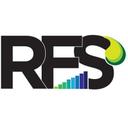DOE announces $52 million in projects to advance production of purpose-gown energy crops

December 18, 2024
BY U.S. Department of Energy
The U.S. Department of Energy's Bioenergy Technologies Office (BETO) has announced $52 million in funding for six university and industry projects to advance the production of low carbon intensity, purpose-grown energy crops critical to accelerating a clean energy bioeconomy. These projects will expand a domestic supply chain of alternative carbon sources essential to biofuels and bioproducts production that can lower net emissions in the transportation and industrial sectors, as well as innovate and grow the U.S. agricultural industry.
Investment in this research supports DOE's long-term objective to develop technologies that mobilize renewable carbon resources to increase the production of bioenergy and renewable chemicals and materials. Prime funding recipients are located in six states with proposed field and pond experiments across 18 different states. These selected projects will focus on the advancement of low carbon intensity, purpose-grown energy crops across varied agronomic and geographic landscapes through the generation of data and research findings. The projects will focus on one or more of the following feedstock resources: microalgae, switchgrass, miscanthus, high biomass sorghum, carinata, camelina, pennycress and shrub willow.
Advertisement
"DOE's investment in biofuels and bioproducts is critical to the federal government's efforts to support innovative energy research," said Jeff Marootian, principal deputy assistant secretary for DOE's Office of Energy Efficiency and Renewable Energy. "Expanding our domestic supply chain of energy crops, like algae and switchgrass, will ensure that we can continue to develop cutting-edge technologies that significantly reduce greenhouse gas emissions, create high-quality jobs across the agricultural industry and increase our energy independence."
With this funding, these projects will play an important role in supporting the federal government's Sustainable Aviation Fuel (SAF) Grand Challenge goal to produce three billion gallons of SAF annually by 2030 and 35 billion gallons annually by 2050, enough to meet 100% of the projected U.S. aviation fuel demand. These research projects also support DOE's Clean Fuels and Products Shot™ by focusing on lowering net emissions in the fuel and chemical industry through alternative sources of carbon to advance cost-effective technologies with a minimum of 85% lower greenhouse gas emissions by 2035.
Advertisement
The six selectees will become members of the new BETO-funded Regional Biomass Resource Hub Initiative (RBRH), led by Idaho National Laboratory (INL). INL will coordinate collaboration amongst the funding recipients to share experimental plans, report data, and collectively achieve the funding objectives. Selectees will be organized in groups to coordinate feedstock data standards and procedures, and to collectively overcome regional resource mobilization challenges and barriers. The RBRH groups will also work alongside a wide range of stakeholders, including national laboratories, universities, regional landowners and farmers, policy makers, among others, to ensure the RBRH is meeting the needs of the industry and communities they serve.
Learn more about these BETO funded projects, and visit BETO's funding opportunities webpages to learn more about their other funding opportunities.
Related Stories
More than 1.76 billion renewable identification numbers (RINs) were generated under the Renewable Fuel Standard in January, down from 1.91 billion generated during the same period of 2024, according to data released by the U.S. EPA on Feb. 20.
The U.S. EPA on Feb. 20 released updated small refinery exemption (SRE) data showing that 13 previously denied SRE petitions for Renewable Fuel Standard compliance years 2021 and 2022 are being reconsidered. No new SRE petitions were filed.
A coalition of biofuel, agriculture, fuel retailer and petroleum trade groups on Feb. 19 sent a letter to U.S. EPA Administrator Lee Zeldin urging the agency to set robust, timely, multiyear RFS RVOs for 2026 and beyond.
CVR pauses development of potential SAF projects pending regulatory, tax credit clarity
CVR Energy Inc. released fourth quarter financial results on Feb. 18, reporting reduced renewable diesel production. The company also said it is pausing development of SAF capacity pending clarity on government subsidies.
CARB on Feb. 18 announced that amendments to its LCFS program that were approved in November 2024 have been put on hold following the California Office of Administrative Law’s decision to disapprove the amendments due to clarity issues.
Upcoming Events










